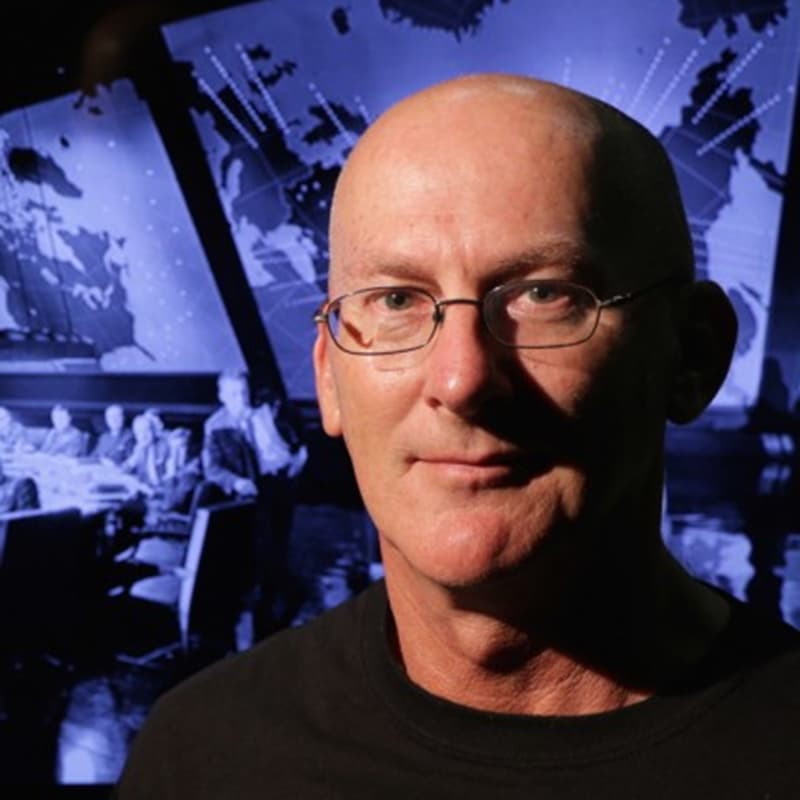


Mick retired from Murdoch University as Professor of Media Analysis at the end of 2020. He continues his scholarly pursuits as the 2021-22 Smithsonian Chair of Aerospace History at the US National Air & Space Museum in Washington DC and Adjunct Professor of Media & Creative Arts at Curtin University.
Apart from conventional research outputs that include numerous research monographs, edited books, journal special issues and articles and book chapters, his creative work includes curated installations of material culture artefacts and film programs, digital media productions, photographic exhibitions and artworks shown nationally and internationally.
Increasingly Mick has worked collaboratively with cohorts afflicted by intergenerational trauma by training and facilitating the ethical recording and sharing of those experiences within community, such as survivors of the Rwandan genocide and those impacted by decades of cold war nuclear testing around the world.


RMIT University acknowledges the people of the Woi wurrung and Boon wurrung language groups of the eastern Kulin Nation on whose unceded lands we conduct the business of the University. RMIT University respectfully acknowledges their Ancestors and Elders, past and present. RMIT also acknowledges the Traditional Custodians and their Ancestors of the lands and waters across Australia where we conduct our business - Artwork 'Sentient' by Hollie Johnson, Gunaikurnai and Monero Ngarigo.
Learn more about our commitment to Indigenous cultures